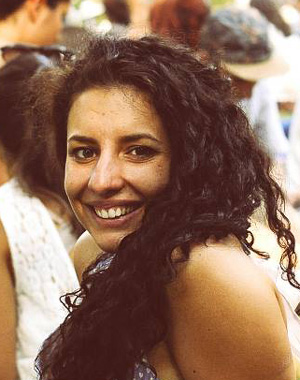When we turn our attention to orphans or disabled children we tend to show false concern for a few minutes but then quickly change the subject. Until something like that happens to us or to the people around us we act as if such problems simply do not exist. The good thing is that this tendency is turning. More and more people have been getting involved in charity campaigns dedicated to different causes. What matters to them most is to be certain that the money they are donating really does go to solve the problem in question.
Operation “Teddy bear” is one of the initiatives that make Christmas possible for thousands of children at institutions in this country, by giving them the presents they want. How did this idea come about? The answer from its organizer Mihaela Stoykova:
 “Operation “Teddy Bear” was launched nine years ago while I was studying abroad. What motivated me was another such campaign called “Shoebox Day” when people put gifts inside shoeboxes that were sent to Africa. I took part in that initiative and made up my mind to do something like that in Bulgaria.”
“Operation “Teddy Bear” was launched nine years ago while I was studying abroad. What motivated me was another such campaign called “Shoebox Day” when people put gifts inside shoeboxes that were sent to Africa. I took part in that initiative and made up my mind to do something like that in Bulgaria.”
Last year more than 7,000 children from 330 institutions in this country received their new gift and some attention from the volunteers for the campaign. Over nine years Mihaela and her team have been to all institutions for orphans and disadvantaged children in Bulgaria. How are they being cared for?
“Unfortunately, the budget sets aside very little for this kind of institutions. Thank God, there are places where more money comes in for disabled children under EU programmes. In Bourgas and the region around, for example, the facilities are very good and the number of staff is sufficient. But when it comes to institutions for children who are not disabled things are very different. They are usually on a very low budget, the staff finds it difficult to cope with year-round care as these institutions are understaffed. It is very difficult to find trained employees.”
The problem of understaffing at such institutions is that people are not motivated to apply for a job at such a home. Salaries are low given the working conditions and the efforts they have to invest so as to solve each individual problem.
Yet this state of affairs has not dissuaded Mihaela or her friends and they have been helping children evolve and one day, change their lives.
“As of this year we are launching a project for which we have been looking for serious funding and partners. It is called “Hidden Talents of Bulgaria” and its aim is to select ten disadvantaged children every year who are provided weekly mentors, private lessons, access to seminars, workshops, contests; we cover the cost of any materials they need to unfold their talents. The idea is to support the children throughout the year and to have teams working with them so they are able to develop in the chosen field. By the time the year is up we should have found some kind of partnership for them – a company or a private person – to support them over the following year.”
Initiatives like this stand every chance of changing the lives of children who have talent but no chance of showing it. Most often the reason is lack of money to follow their dreams. If you would like to help you can do so by logging onto http://plushenomeche.org/bg/. Every penny is an investment in a better future, the kind of future the children deserve.
English version: Milena Daynova
Students from the Vasil Aprilov Bulgarian Sunday School in Charlotte, North Carolina, USA, learned about the life and art of Vladimir Dimitrov – the Master, BTA reports. During the lesson, the children viewed various paintings by the Master and then..
Bulgaria is the country with the lowest prices of basic fuels in the EU – petrol and diesel, data show. Yet, as the date of the expected adoption of the single European currency, the Euro, as of 1 January next year draws nearer, people’s fears seem to..
Yana Todorova is a tour guide and teacher. Since 2019, she has been a member of the Association of Tour Guides in Bulgaria, but has been working as such since 2006. She uses every opportunity to do so today, especially within the framework of the..
In a tradition that began informally over 40 years ago and has evolved over time , thousands of people crowded onto Bulgarian beaches on 1 July to welcome..

+359 2 9336 661
